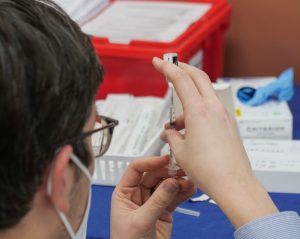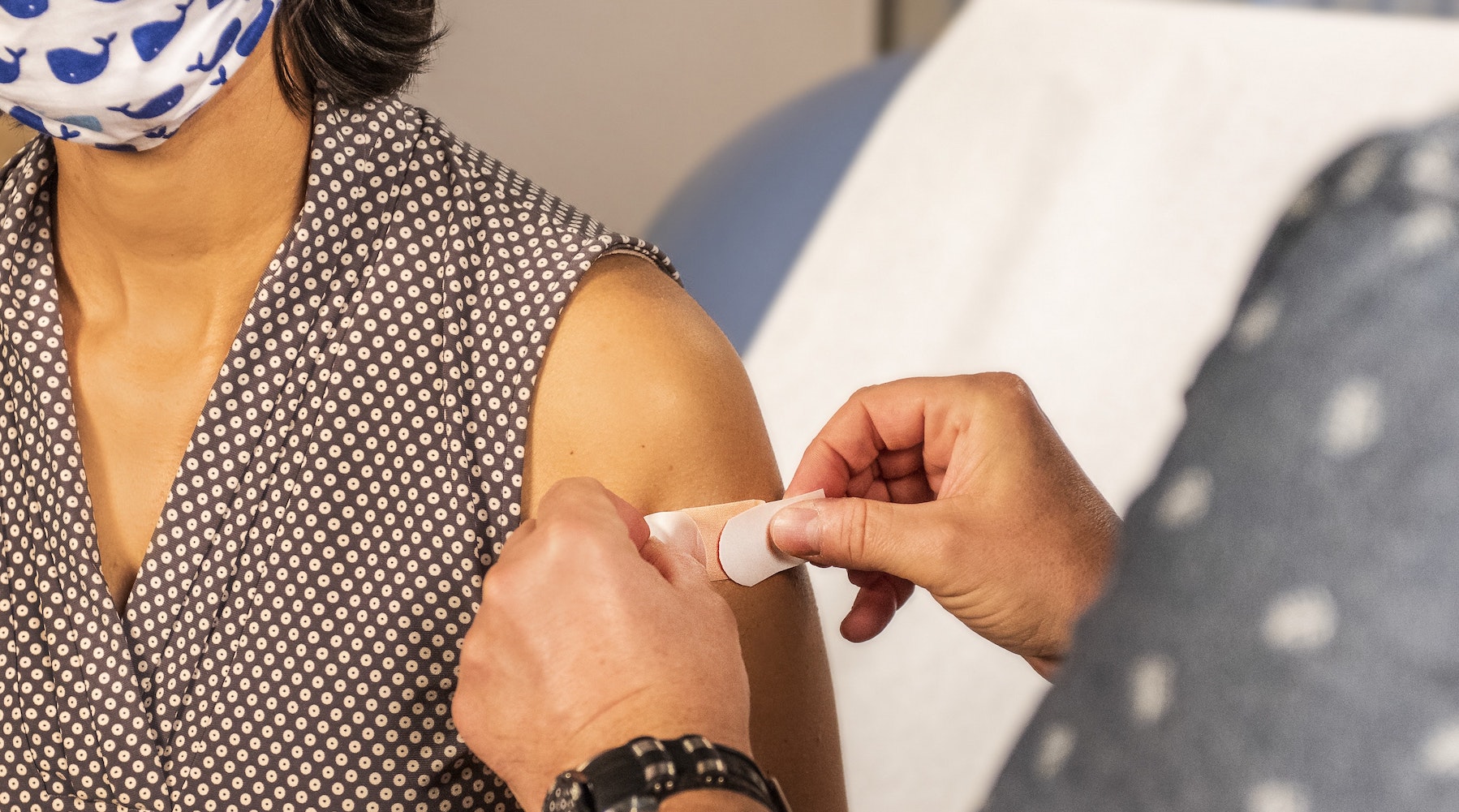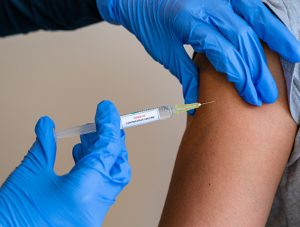You’ve heard the stories. Perhaps you have friends or family members who’ve done it. Heck, maybe you’ve tried it yourself.
We’re talking about vaccine hunting.
Websites and Facebook groups now exist to help people locate spare doses of Covid-19 vaccine that may become available at day’s end at vaccine administration sites. Less formal word-of-mouth networks are also plentiful, with breathless phone calls and texts making the rounds when word gets out that a clinic may have extra shots, “but you have to get there in the next 10 minutes!”
These vaccines are being administered outside of the formal tiered system, usually from some combination of a waiting list and a good old-fashioned line. (Do you remember when we stood in lines for things like the latest iPhones and tickets to Hamilton?)
Typically, the folks getting the shots this way are not yet eligible under state guidelines. Still, sites are willing to provide vaccinations because, once they’ve administered shots to everyone who had appointments that day, they’re finding themselves with unused doses left in open vials. If they don’t put that vaccine into someone’s arm, they’ll have to throw it out, as it can’t be returned to a freezer for future use.
A post in a Louisiana Facebook group called NOLA Vaccine Hunters described the process of ferreting out unused doses:
“What I like to do is make a list of vaccination centers that have lots of appointments and visit each location to get a scope of the land. Then I go back to the locations I like at the end of the day. The cancellations and ‘extra’ doses found, a.k.a. angel doses, are distributed at this time.”
Vaccine hunting is time-consuming, the poster wrote, because one must “physically drive around to see which vaccine locations will let you wait for end-of-day doses.” Many of the hunters are young people who enjoy some degree of independence from jobs that would preclude such activities.
Predictably, this has generated some unhappiness. “It’s actually making me angry to imagine a bunch of healthy, work-from-home, 25-year-olds crowding around the waiting area at my pharmacy in the afternoon begging for doses,” growled one person on Reddit.
It’s understandable that this perceived line-jumping gets under people’s skin. As long as vaccine remains in short supply, the specter of twenty-somethings stalking drug stores will raise hackles.
But it shouldn’t.
Sure, in a perfect world, Adam’s 90-year-old father would already be vaccinated. (He lives outside of Philadelphia and just got his appointment for his first dose in early March.) However, even if a few recent college graduates in southeastern Pennsylvania have already managed to get vaccinated, they didn’t jump ahead of Mike Cohen in line.
The vaccinations they received didn’t come through the online portal where Mike registered and eventually received his appointment. Their shots came via the equivalent of a dice roll, a gamble few nonagenarians are willing to – or should – take.
You see, Mike wasn’t going to canvas social media to find out where many doses were being administered on a given day. And he wasn’t going to queue for hours for the mere chance at a shot.
The inefficiencies and inconsistencies in vaccine rollout efforts have sowed mistrust in a system already viewed with skepticism. Widely publicized stories of scammers, like the New York SoulCycle instructor who identified herself as an educator to get a shot, have only deepened people’s wariness of a process many see as rigged.
 The truth, though, is that the logistics of vaccine administration are complicated. Once you open a vial of vaccine, you have six hours to use it. Some people don’t show up for appointments. A few get turned away because of allergies. And the number of doses in a vial can vary, depending on the individual administering shots and the type of needle used.
The truth, though, is that the logistics of vaccine administration are complicated. Once you open a vial of vaccine, you have six hours to use it. Some people don’t show up for appointments. A few get turned away because of allergies. And the number of doses in a vial can vary, depending on the individual administering shots and the type of needle used.
“No matter what you do, there are always leftover doses,” says Sean Bauman, president and CEO of IMMY, a Norman company that’s administered more than 15,000 shots to Oklahomans.
Ideally, you’d want to give those leftover doses to the most vulnerable among us. That might mean redistribution to homeless shelters or creating some sort of waiting list that prioritizes people based on health status. But until we develop such systems – and based on how things have gone so far, we’re not holding our breath – we should accept the one we have. Even if it’s a little broken.
If unused doses don’t go into vaccine hunters’ arms, they’d go into the garbage. How does that help anyone?
Sure, it feels a little wrong. But every person vaccinated, even out of “order,” not only protects themselves, but also everyone they might potentially have infected while awaiting their turns.
To us, that sounds a lot better than a trash can full of spoiled vaccine.
__
Dr. Stephen Prescott is president of the Oklahoma Medical Research Foundation, and Adam Cohen is OMRF’s senior vice president and general counsel. They can be reached at omrf-president@omrf.org. Get On Your Health delivered to your inbox each Sunday — sign up here.







